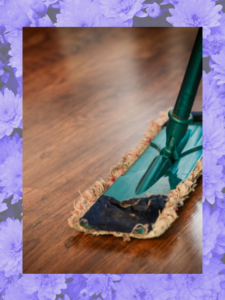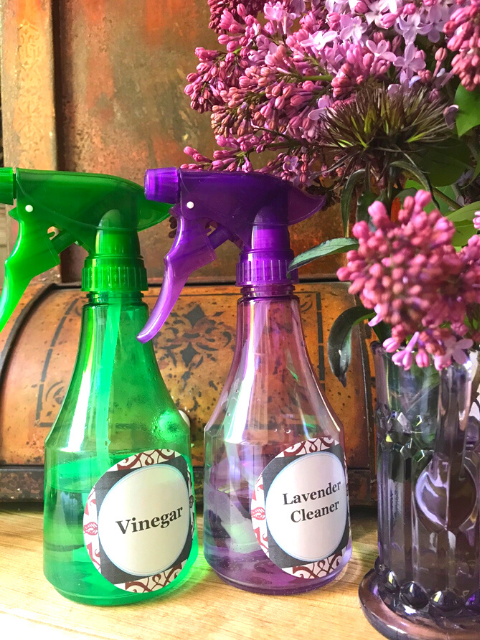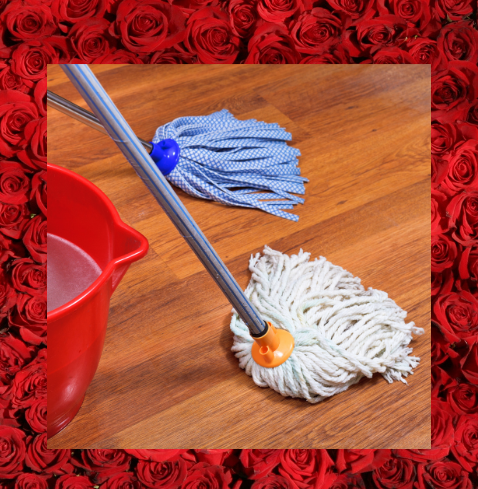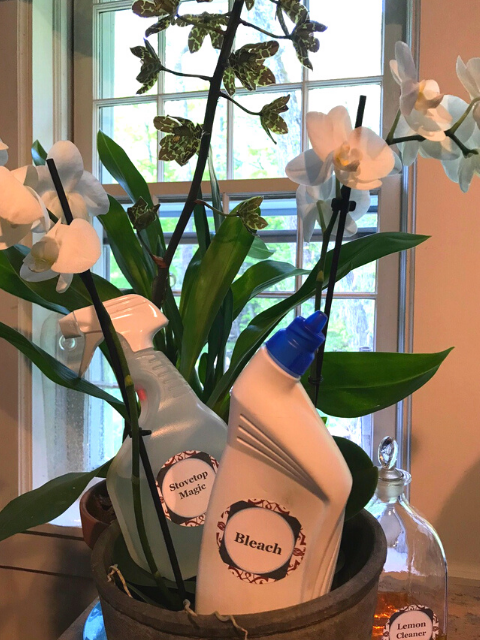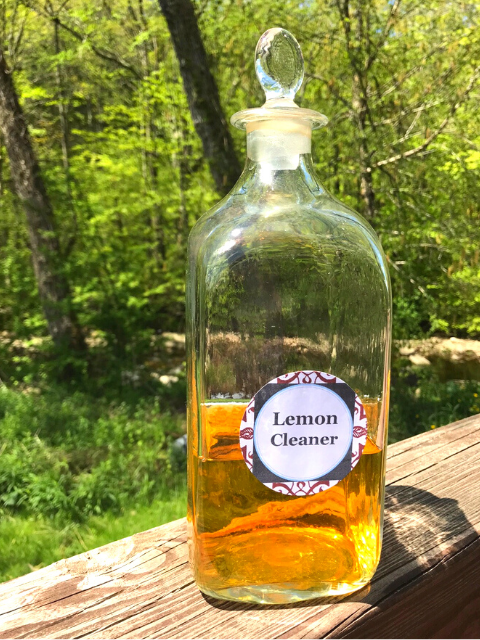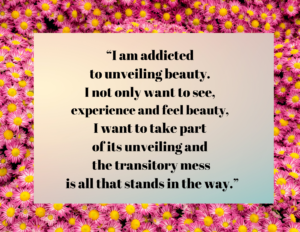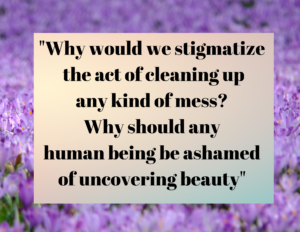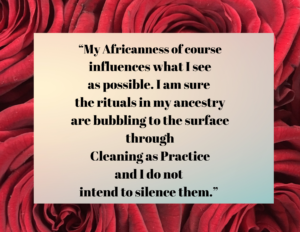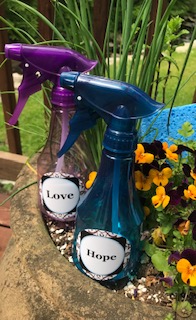The objects we own have a special relationship with us. We are constantly exchanging energy with them. This is a particularly powerful activity when we choose the objects that bring beauty and joy into our lives. One impediment, however, can interrupt this joyful experience and that is dirt. It is that mini wall that consistently covers our objects with grime, decomposing skin, clothing fibers, pollen, microscopic pieces of plastics, bug parts, and dust mites with their detritus. When our objects are covered with “something else,” particularly the stuff of decay, good energy cannot get exchanged. The most effective way to reestablish a connection to our objects and to release energy in our environment is through cleaning.
In the laboratory of our own personal experience, we have probably noticed the change in our being when walking into a freshly cleaned space. The lift is palpable.
The Hidden Mysteries of Cleaning
For a long time, I have known how cleaning can inject a positive mood, so I have put those ideas into practice.
When I worked in my last school, I ran an academic enrichment program for teenagers in the inner city. The students were always under a lot of stress so I created the classroom according to my principles of metaphysical decorating. Students felt uplifted and comforted in their surroundings. Even the teachers came to the room for breaks, telling me that when they left, they did so with a positive change in energy.
Cleaning and Education
Aside from the room being decorated, I had another secret. Whenever I found that the students were under more stress, I would come into work early and wash the floor. It didn’t look dirty because the custodians always dusted it the night before with an oil mop. They did not use water on the floors, however, except twice a year when the floors got waxed. Dusting is not enough to release all negative energy; as much as possible, water should be used. [2]
Washing the floor always made the room feel more energetic and peaceful and I saw a subtle change in behaviors.
Because cleaning is a way of releasing energy, I believe that the act of cleaning is a sacred act.
***
Yet in Western society, cleaners are often stigmatized as one of the lowest status levels in the society, which often renders them invisible and poorly paid. In metaphysical decorating, however, cleaners are considered to be one of the most important professions.
My Search for the Spiritual Connection to Cleaning
I have been actively writing on the metaphysics of decorating for over thirty-five years. As I write, I research and fill folders with papers on all the topics which are included in my book and blog. Most of the folders are bursting, but the one dedicated to the spiritual aspects of cleaning have remained pretty much empty for many years.
Filling up the Folder
Nonetheless, several years ago, I struck gold when I discovered writings by Tolulope Ilesanmi connecting cleaning with spirituality. I thought I had found a kindred soul. So, I printed a couple of pieces of his written work and stuck it in my folder to be used for a later date.

As I started to write this chapter, I did an internet search to find out more about Tolulope, only to find out that he had passed away in June 2017. I also discovered his podcasts, company’s Facebook page, and a mini documentary were no longer available. Consequently, I printed his writings and writings about him, before those too were lost.
I thought he was guiding my own words when he wrote:
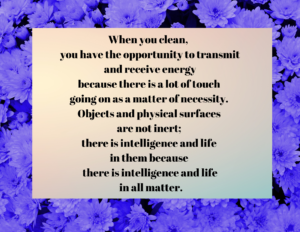
Remembering Tolu
Excerpts from Tolulope’s eulogy reflected his special soul and the deep connection he had with the spirituality of cleaning:
“Now and then someone comes to visit this planet and, finding it a bit dusty and forlorn, rolls up his sleeves and gets to work”
“Tolu was a guest here. I don’t know where he was visiting from, but I suspect it was the future…”
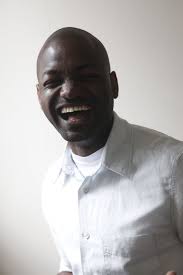
“He came to visit this dying house, and he said, ‘If you clean it well enough you will see a new house, and it will be beautiful.’” [4]
Tolulope Ilesanmi ’s Life and Philosophy
Tolulope was a banker in Nigeria when he came to Montreal, Canada to get his MBA at McGill University. To support himself, he and his wife started Zenith Cleaning. He loved to clean but was troubled by the inherent disregard for cleaners in Western society. The experience of what was at first shame from first being a banker to then becoming a cleaner,eventually became a transformative experience for him.
Tolulope was a religious man who loved to ponder the mysteries of life. So when he was thrust into doing the work in a stigmatized profession, he decided he needed to change its perception. He recalled:
“It took me a long time to be able to articulate how the prevailing narrative of cleaning is a faulty one. It took years of stumbling and failing forward, years of confusion, while still running a cleaning business.” [5]
Tolulope went on, redefining the experience until it came down to one core philosophy:
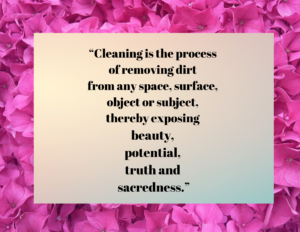
Cleaning the Cleaning Stigma
To remove the stigma of cleaning, Tolulope said to himself, “I will contemplate this thing with awe and curiosity and gratitude until it is done with me.”
Tolulope wrote about the stigmas associated with his life to show how pervasive these labels are in the human experience. No matter how good one’s position, humans will always find its shadow side. He counted the following stigmas associated with his various roles.:
- Bankers = un-empathetic
- Business people = “capitalists, exploiters and opportunists who do not care about people and the environment”
- Nigerian = financial scammers
- Immigrants = workers in menial jobs
- Canadians = pacifists bordering on passive
- MBA graduates = capitalists who care only about money and are responsible for the world’s problems
- Members of social enterprise groups = “tree huggers, liberal, socialists, anti-capitalists whose hidden agenda is to reverse progress or introduce a new world order”
- Members of spiritual groups = new age-y
- Cleaners = lowest on the professional hierarchy [7]
In a sense, a stigma is a metaphor for judgment. Tolulope acted as a Buddha, ridding the world of judgment but instead of sitting under a Bodhi tree, he used a mop and a broom until he came to enlightenment.
Convincing Others to Do the Same
It is not unusual for companies like Google, Apple, Deutsche Bank and General Mills to introduce programs to help their employees increase productivity and reduce stress. Tolulope created Cleaning as Practice, a program to which CEOs and executives were invited to spend time cleaning to practice mindfulness and then to reflect on their experiences. He truly believed that mucky messes would put the cleaner into a meditative arena that would change perspectives, enhance creativity and lead to spiritual transformation. Tolulope continued the program in schools as well as for organizational team building exercises on cleaning. Furthermore, these business executives were not pretend cleaning with a dust cloth or two.
Instead, these high ranking business executives welcomed cleaning the worst of the worst of mud and muck, including toilets.[8]
Cleaning was used as a way for these executives to “get out of the box,” to “see with fresh eyes,” and to “cross imaginary boundaries.” By the time Tolulope died, corporations were paying his company, Zenith Cleaners, to allow their executives to clean for free.
Learning Forgiveness While Cleaning
Once Tolulope gave a workshop at the University of Cape Town Graduate School of Business. The group cleaned a public bathroom, but before they were finished, someone came in and soiled one of the toilets. The cleaners knew that they had to go back and re-clean it yet not allow a grudge to put a stain on their minds. During the post-cleaning conversation Tolulope responded,
“Cleaners and domestic workers, we realized, with the on-going systemic and day-to-day abuses they suffer, were continuously practicing FORGIVENESS. They never know what to expect and they encounter all sorts of dirt on many levels; yet their task is to meet abuse with the all-purpose cleaner called LOVE, bringing loving-kindness to spaces and people, while washing their own minds and hearts with the same loving-kindness. As Archbishop Desmond Tutu said at the start of the Truth and Reconciliation Commission, ‘The most forgiving people I have ever come across are people who have suffered — it is as if suffering has ripped them open into empathy. I am talking about wounded healers.'” Tolulope believed this forgiveness applied to many cleaners. [9]
My Thoughts
It is not my practice to use the words of another to express my ideas, but I believe Tolulope’s words are NUCLEAR. This lesson ends with quotes from his work. I have included references to all his writings and urge the reader to pursue them. Many are still disappearing from the internet.
Yes, like Tolulope, I believe cleaners are healers, but because of the stigma attached to manual labor, they are wounded and must constantly practice forgiveness to heal their wounds.
Thus the hands that might be touching our objects, if we have others clean for us, might carry hurt and shame or forgiveness and reverence.
The choice of what they carry may be up to us. It is beneficial to have our objects imbued with positive energy. So it is best to increase the positive energy of those who clean for us.
♥Start by paying those who clean a living wage, which is particularly true if you make a good salary. The cleaner lifts the burden of maintaining our homes so we can have the chance to increase income
♥Those who are cleaners should be reminded that the work they do with their hands and heart is a sacred act. By cleaning, they are removing the false narrative of what an object is, exposing its truth and uncovering its beauty.
♥Even though we pay others to clean, we should not be strangers to the process. Cleaning can bring us in touch with our objects, our homes and ourselves.
♥Cleaning should be done before the dirt is seen. It should be done when we feel the environment’s loss of energy.
Looking for Our Potential in Decorating and Cleaning
In her essay, “Decorating As a Poetical Act,” Karen-Claire Voss exhorts us to do the same:
“Who among us has not had the experience of unexpectedly coming upon an object which seemed to call out to us, which we felt we had to have, which once installed in its place in our home continued to give us pleasure? Yet how many of us have seriously contemplated this phenomenon? Looking at such an object is a source of deep satisfaction. Moreover, we find that even its care and maintenance serves to enhance that initial satisfaction, enabling us to renew the relationship of intimacy which begins when we encountered the thing, and allowing us to deepen it.
“In Gaston Bachelard’s The Poetics of Space, a memorable statement related to the plenitude of space, and the qualitative differences which exist between one space and another, he observes that ‘when a poet rubs a piece of furniture… when he puts a little fragrant wax on his table with the woolen cloth that lends warmth to everything it touches, he creates a new object; he increases the object’s human dignity; he registers the object officially as a member of the human household.’
Are these insignificant, ordinary actions? Not at all. As Bachelard notes, ‘One of the powers of attraction of smallness lies in the fact that large things can issue from small ones.’ Indeed, once imbued with awareness and intentionality, even small actions can become poetical acts: fecund, intrinsically transformative, infinitely creative world making acts, the kind which Mircea described as being an ‘imitation of the acts of the gods in the beginning.'” See Footnote[10]
The Wisdom of Tolulope Ilesanmi in His Own Words
To find Tolulope’s writings, google his name and you will find most of them on Organization Unbound and Linkedin. Here are some of my favorites.
“You may be a CEO, but why not clean the washroom periodically, even if once a quarter? Your mind will probably be clearer and calmer, not to mention the impact on your team. It is radical but how else can transformation happen if not by radical means? If not cleaning the washroom, wait tables once a quarter or once a year, or just do the ‘lowest’ and farthest thing from your role.”[14]
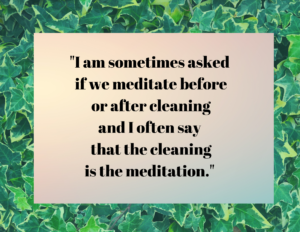
A Cleaner’s task is to be with the mess, any mess, and with the practice of loving-kindness transform it into beauty. There is more suffering involved, it is more difficult, you will get dirty, and you may “fail” or even die in the process. But it is more fulfilling to be in the world as a beautifier than as someone who is only drawn to places and spaces that are already beautiful. [18]
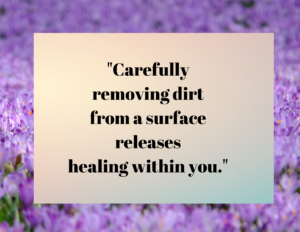
When you want to remind yourself that transformation is possible in a difficult situation, go and love yourself by cleaning the bathroom or the dishes. You may very well begin to see differently, which is often what is needed in difficult situations.” [19]

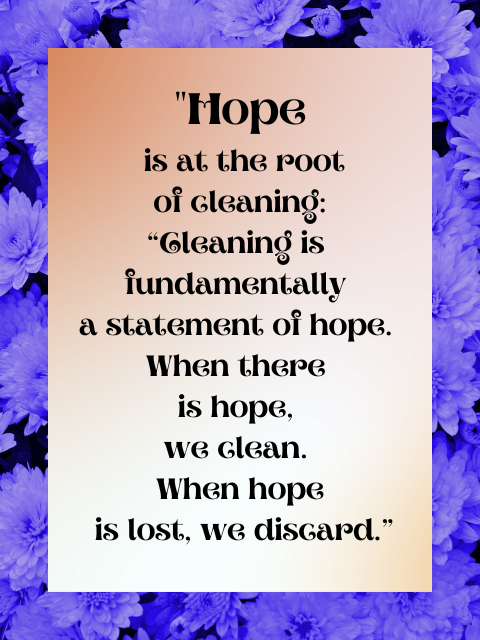
Footnotes and Additional Notes
[2] Water is the most powerful cleaner for restoring energy and I advise using it whenever you can in cleaning. If it were an item that would be hurt by water like a piece of furniture, I would recommend the most liquid-like wax or polish. Smart phones/computer screens and keyboards should not just get cleaned with compressed air but also with the appropriate moist cloth. Vases and knick-knacks should go into the sink occasionally and get a good soapy wash. Keep in mind that all religious rituals to release negative energy are connected to water.
[8] Darrah Hansen. The globeandmail.com. “How Cleaning Homes Can Kick Start Creativity at Work, Reignite Professional Passion.”.
[10] At present, not available on the Internet. Karen – Claire Voss. Arredamento Dekorasyon. “Decorating as Poetical Act.” translated from the Turkish article, “Bir Sirirsel Edim Olarak Dekorasyon.” April 1994
[21 At present, not available on the Internet.] Tolulope Ilesanmi. LinkedIn. “Cleaning Education” July 8, 2015
***
There are two parts to this website, The Lessons, which are more difficult in concept and the blogs, which are lighter in nature. Blogs that you might enjoy with connections to Lesson VIII are as follows:
Please note that my website allows you to leave comments at the end of the blogs but not at the end of each lesson. If you have a comment or question about a lesson, you may email me at ruta@rutas-rules.com

